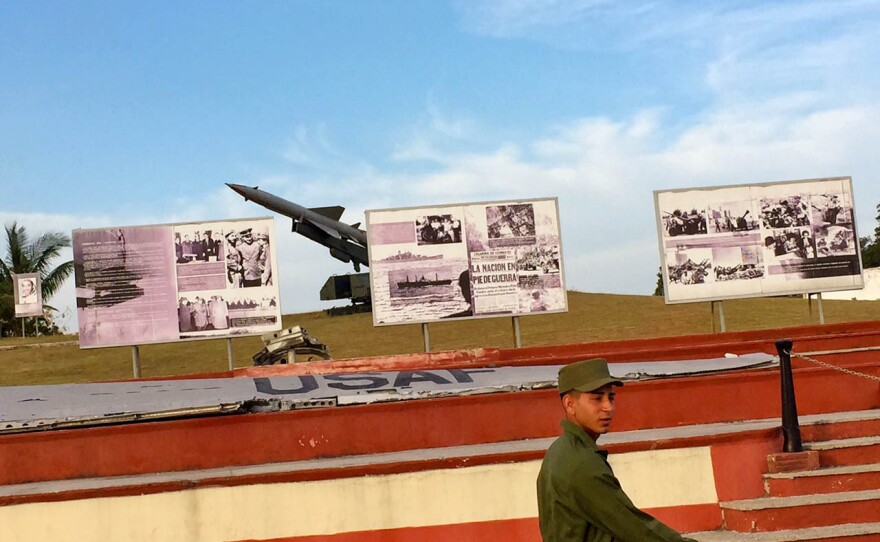
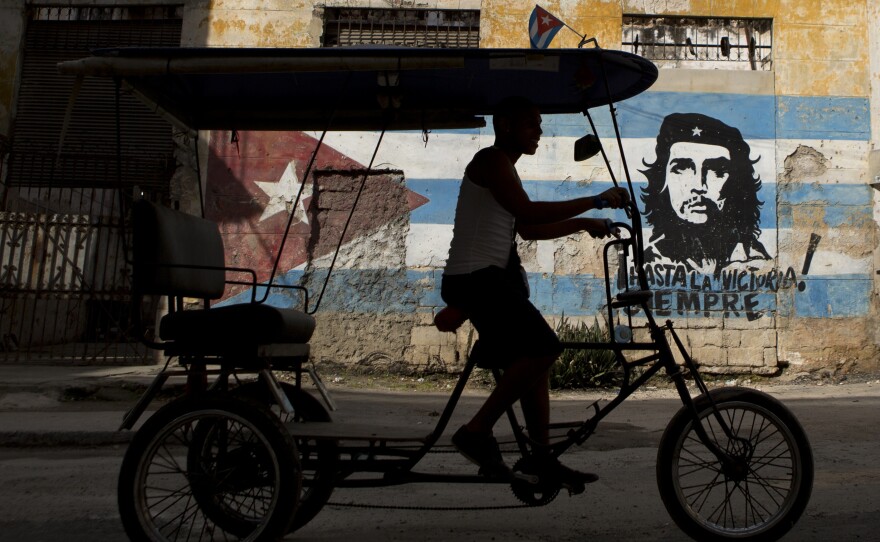
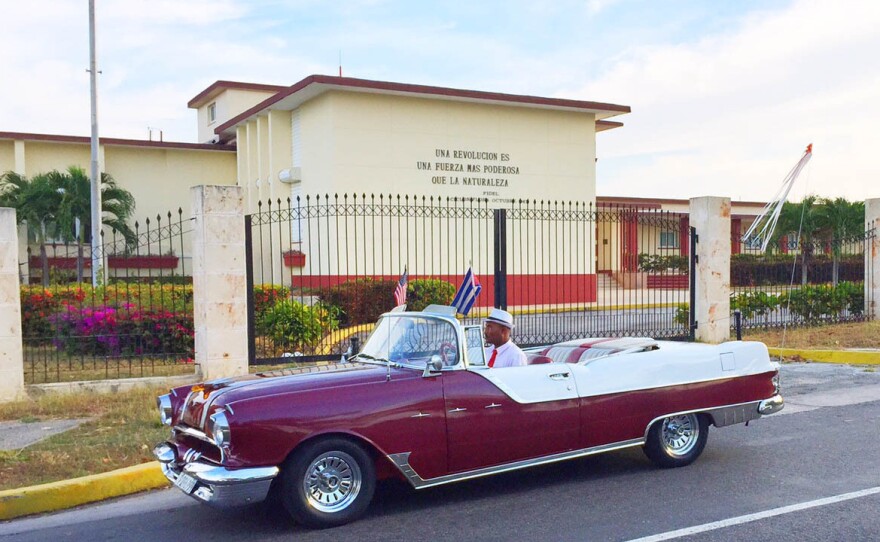
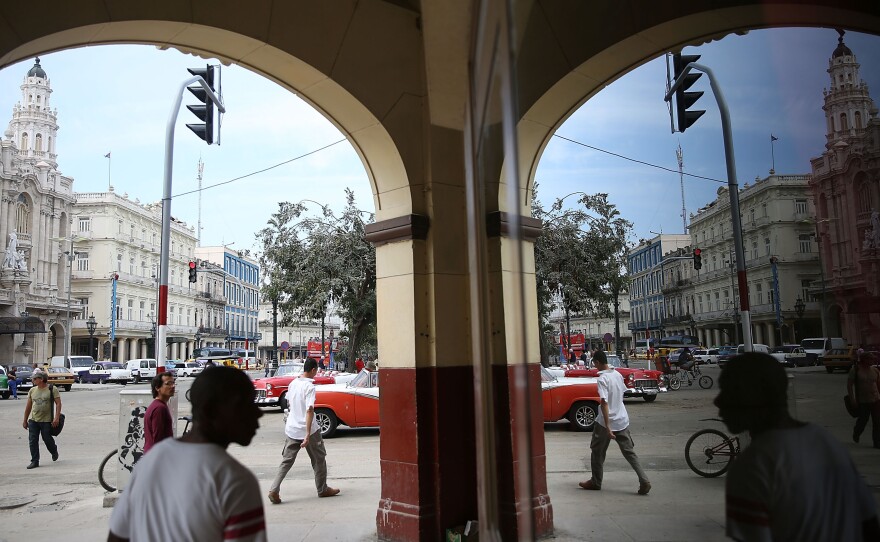
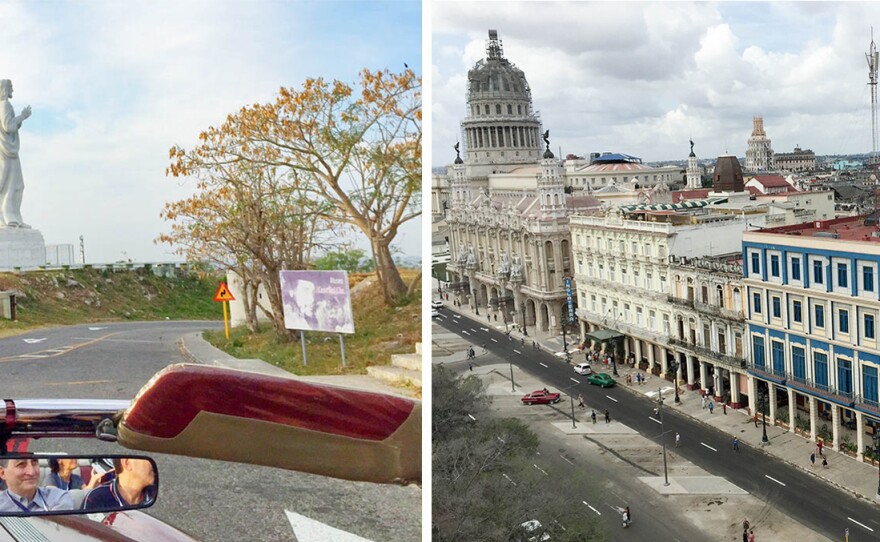
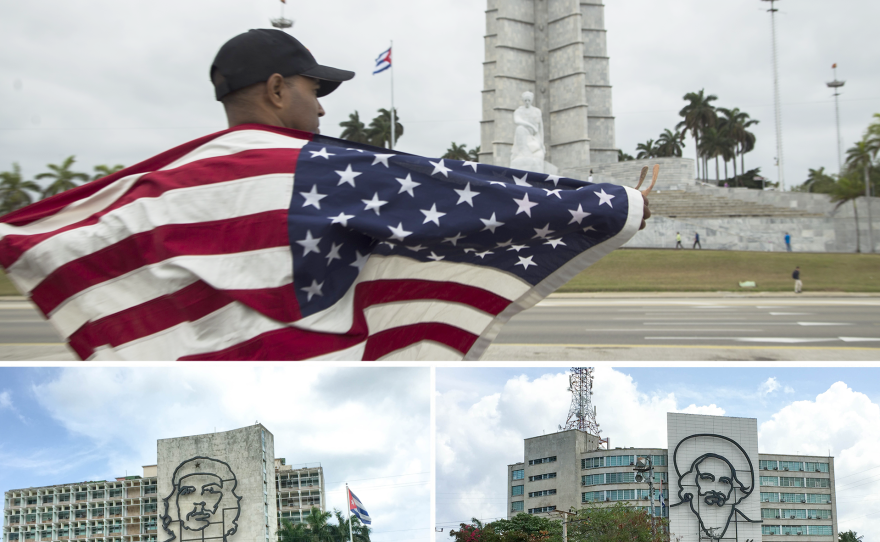
For most of the past half century, Americans were generally prohibited from traveling to Cuba. And those who snuck in — via third countries — were careful to avoid tell-tale marks in their passports. That's no longer the case, though. Since the U.S. government began loosening restrictions 15 months ago, there's been a surge of Americans traveling to the island: 161,000 in 2015.
That's expected to grow when scheduled air service resumes later this year. Americans are allowed to travel to Cuba for any one of a dozen approved purposes including family visits, educational activities, professional meetings, athletic competitions and humanitarian projects.
"Christ of Havana," a 66-foot-tall marble statue overlooking the harbor, is one of the more striking landmarks in the Cuban capital. It was carved by sculptor Jilma Madera of San Cristobal, Cuba, and is said to be the tallest statue in the world by a female artist. Fulgencio Batista dedicated the statue on Christmas Eve, 1958 — one of his last official acts before fleeing Cuba to the Dominican Republic to escape the revolution. The statue is perched on high ground with a commanding view of Havana, including the domed capitol building. "El Capitolio" resembles the U.S. Capitol in Washington, right down the scaffolding as it undergoes renovation.
One of President Obama's first stops in Cuba was the Havana Cathedral. One of the oldest cathedrals in the new world, it was completed in 1787, just as James Madison and friends were drafting the U.S. Constitution. The president and his family toured the frescoed cathedral with Cardinal Jaime Ortega of Cuba. Along with Pope Francis — the first Latin American pontiff — Cardinal Ortega was very encouraging during the secret talks that led up to the diplomatic breakthrough between the U.S. and Cuba on Dec. 17, 2014.
On his first full day in Havana, President Obama paid tribute to Cuban independence champion Jose Marti, who's memorialized with a statue and a giant tower at the edge of what's now the Plaza de la Revolucion. Marti, who's revered in both Cuba and Miami, was a safe choice for the president. On the opposite side of the plaza, buildings housing Cuba's Ministry of Interior and Communications are decorated with eight-story portraits of more controversial figures: Che Guevara and Camilo Cienfuegos. One can only wonder what these late Cuban revolutionaries would have thought during the welcoming ceremony for Obama, when a Cuban military band struck up the "Star Spangled Banner."
"I know the history, but I refuse to be trapped by it." — President Obama, in his televised address to the Cuban people.
History is on constant display in Cuba, so any visit can feel like stepping into a time capsule. Classic cars famously prowl the streets, like the 1955 Pontiac Star Chief convertible in which tour guide Jorge Achon ferried several journalist colleagues and me. Obama says the ability to keep these cars running despite the embargo on spare parts is a tribute to Cuban ingenuity.
There are many more somber reminders of Cold War hostility between the U.S. and Cuba, which came to a head during the Cuban Missile Crisis in October, 1962. Cubans proudly show off wreckage of a U.S. spy plane that was shot down over the island while tracking Soviet missiles. "The history of the United States and Cuba encompass revolution and conflict," Obama said. "It is time, now, for us to leave the past behind. It is time for us to look forward to the future together."
Despite decades of isolation, Cuba remains a close neighbor of the United States, culturally as well as geographically. "In many ways, "Obama said, "the United States and Cuba are like two brothers who've been estranged for many years, even as we share the same blood." That kinship includes a shared passion for baseball. Obama joined Cuban President Raul Castro at a partido amistoso, or friendly game, between the Tampa Bay Rays and the Cuban national team. Two sons of Cuba threw out the ceremonial first pitches: Luis Clemente Tiant, who pitched for the Boston Red Sox and the Cleveland Indians, and Pedro Luis Lazo, who was known as the "iron arm" of many Cuban teams.
Copyright 2016 NPR. To see more, visit http://www.npr.org/.






